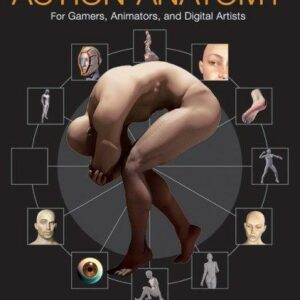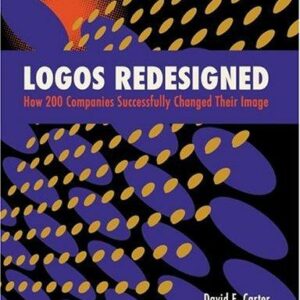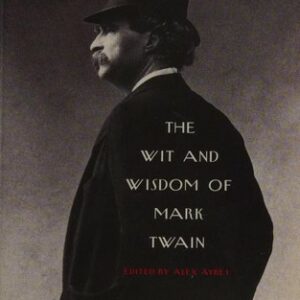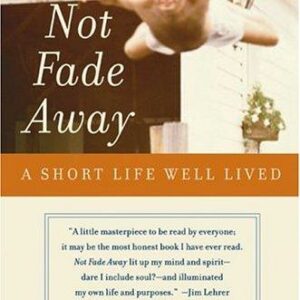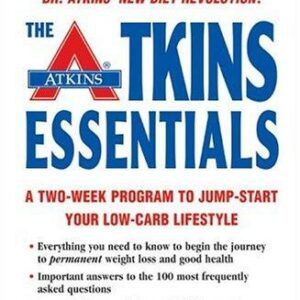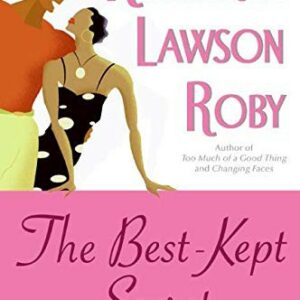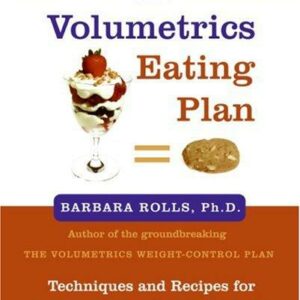Drug Use for Grown-Ups
$17.00
| Title | Range | Discount |
|---|---|---|
| Trade Discount | 5 + | 25% |
- Description
- Additional information
Description
“Hart’s argument that we need to drastically revise our current view of illegal drugs is both powerful and timely . . . when it comes to the legacy of this country’s war on drugs, we should all share his outrage.” —The New York Times Book Review
From one of the world’s foremost experts on the subject, a powerful argument that the greatest damage from drugs flows from their being illegal, and a hopeful reckoning with the possibility of their use as part of a responsible and happy life
Dr. Carl L. Hart, Ziff Professor at Columbia University and former chair of the Department of Psychology, is one of the world’s preeminent experts on the effects of so-called recreational drugs on the human mind and body. Dr. Hart is open about the fact that he uses drugs himself, in a happy balance with the rest of his full and productive life as a researcher and professor, husband, father, and friend. In Drug Use for Grown-Ups, he draws on decades of research and his own personal experience to argue definitively that the criminalization and demonization of drug use–not drugs themselves–have been a tremendous scourge on America, not least in reinforcing this country’s enduring structural racism.
Dr. Hart did not always have this view. He came of age in one of Miami’s most troubled neighborhoods at a time when many ills were being laid at the door of crack cocaine. His initial work as a researcher was aimed at proving that drug use caused bad outcomes. But one problem kept cropping up: the evidence from his research did not support his hypothesis. From inside the massively well-funded research arm of the American war on drugs, he saw how the facts did not support the ideology. The truth was dismissed and distorted in order to keep fear and outrage stoked, the funds rolling in, and Black and brown bodies behind bars.
Drug Use for Grown-Ups will be controversial, to be sure: the propaganda war, Dr. Hart argues, has been tremendously effective. Imagine if the only subject of any discussion about driving automobiles was fatal car crashes. Drug Use for Grown-Ups offers a radically different vision: when used responsibly, drugs can enrich and enhance our lives. We have a long way to go, but the vital conversation this book will generate is an extraordinarily important step.One of Behavioral Scientist‘s Best Books of the Year
“[Hart’s] positions may seem quite extreme to some but they also, by and large, make a lot of sense—and are backed up by ample research . . . A major reason drugs have such a negative public image, Hart asserts, is racism . . . eye-opening.” —NPR.org
“Hart’s argument that we need to drastically revise our current view of illegal drugs is both powerful and timely . . . when it comes to the legacy of this country’s war on drugs, we should all share his outrage.” —The New York Times Book Review
“One of the most thought-provoking reads I’ve had the pleasure of exploring in a long time . . .” —Trevor Noah, The Daily Show
“Hart’s book is compelling and well-argued. It’s one of those zeitgeisty books that manages to perform iconoclasm while outlining the unspoken obvious, detailing a lifestyle that many hold but few admit to publicly . . . Provocative and necessary.” —Jezebel
“Provocative and enlightening . . . Drug Use for Grown-Ups has the soul of a manifesto.” —Wall Street Journal
“As more and more states across the country legalize marijuana, and as popular opinion toward the war on drugs sours, Dr. Carl L. Hart’s new book arrives at the perfect time. . . . thoughtful and persuasive . . . He argues that if we truly believe in liberty as established in the Declaration of Independence, then the pursuit of this particular happiness should also be part of our protected civil liberties.” —BookPage (starred review)
“I approached this book with knee-jerk skepticism . . . But Hart, a neuroscientist who specializes in drugs and addiction, met my ignorance with a series of thought-provoking arguments . . . Through his own experiences and research, he makes a compelling case for revising our mindsets about taboo substances, and the people who use them.” —Discover Magazine
“A full-throated defense of self-aware, voluntary drug use . . . a valuable tool for mounting arguments in defense of free choice.” —Kirkus
“A timely, fact-based, coherent, humane counterargument to America’s spectacularly failed War on Drugs.” —Booklist (starred review)
“Comprehensive and illuminating . . . Columbia University psychology professor Hart combines his scientific research on how recreational drugs impact brain functioning with reflections on his own use of heroin and other drugs. . . . Careful reasoning and detailed evidence buttress the book’s most surprising claims . . . This bracingly contrarian take provides much food for thought.” —Publisher’s Weekly
“You must read this book. It’s an eye-opening, mind-expanding masterpiece from one of the most important scientists in the world. You won’t be the same after.” —Johann Hari, author of Chasing the Scream
“Why won’t this nation admit that criminalizing drugs has been far more deadly than the drugs themselves? This deeply personal, honest, and courageous book shines a crucial light on a topic cloaked in racism, repression, and myth.” —Dorothy Roberts, author of Killing the Black Body, Shattered Bonds, and Fatal Invention
“You may not agree with the author’s personal enthusiasm for recreational drug use (and I happen not to). Nonetheless, Drug Use For Grown-Ups is a powerful, convincing tour of the hypocrisy that underlies so many of our drug laws, and the brutally unequal ways in which the laws are enforced. One shares Hart’s fury at how, as per usual, it is the weak and marginalized members of society who are most targeted.” —Robert Sapolsky, author of Behave
“Dr. Carl Hart challenges our popular assumptions about drug addiction both through science and through a forthright account of hiw own heroin use. Drug Use For Grown-Ups makes a powerful case against stigmatizing—and criminalizing—adults who get high.” —Shane Bauer, author of American Prison
“Carl Hart provides a viscerally personal and candid book that debunks common myths that demonize recreational drug use. Hart—a neuroscientist and expert on substance abuse—brings us inside his own experiences with enlightened drug use and his frustration with the ineffectiveness and harm of the war on drugs. His book is timely with the dramatic rise in overdoses in the US compared to societies that have decriminalized drugs and seen a reduction in usage, overdoses and arrests.” —BJ Casey, PhD, Professor of Psychology, Yale University
“Dr. Carl Hart is that rara avis: A stellar neuroscientist—in fact, the preeminent expert on ‘recreational’ drugs—who is honest and enthusiastic about drug use. In Drug Use For Grown-Ups he dissects unalloyed data to dismiss our pernicious mythologies so that we can better understand the truly liberating nature and the real, not the imaginary, risks of these oft-maligned experiences. But Hart is also a captivating storyteller, and that’s what makes this book . . . well, addictive as he follows the data, wisdom and love from Switzerland to Portugal to New York City, taking you along for the ride. As he bravely and humanely traces the science supporting treatment, regulation and decriminalization instead of succumbing to stigma or pandering to respectability politics, he displays a devotion to scientific truth in the service of better human health and relationships. By the time you reluctantly approach this book’s end, you will have acquired an education in what drugs offer us, their potential price, and healthy policies. Armed with this new clarity, it doesn’t matter whether you choose to shun drug use or to embrace its potential as a wondrous human experience: Thanks to Hart’s clarity and courage, your eyes will be opened and for the first time, your choice will be informed.” —Harriet A. Washington, author of Medical Apartheid: The Dark History of Medical Experimentation on Black Americans from Colonial Times to the Present
“This book is written by a leading drug researcher and neuroscientist who has himself grown up through, and been significantly affected by, the era of the ‘war on drugs.’ His personal story from acceptance of the status quo to understanding its fundamental flaws permeates both the science and the wisdom that this book projects. One hopes that the political and scientific establishment reads it and reflects on the urgent need for new evidence-based drugs policies.” —David Nutt, author of Drink? The New Science of Alcohol and Your Health
“Like he did in my Netflix cannabis doc, Grass Is Greener, DR. Carl Hart gives you the real-to-real regarding drug use and dismantles all the lies and misinformation we’ve been assaulted with for decades. Drug Use for Grown-Ups is a hip, street smart, scholarly yet easy-to-read deep dive into the how and why of illegal drugs that should be required reading from millennials to seniors.” —Fab 5 FreddyCarl Hart is the Ziff Professor of Psychology in the Departments of Psychology and Psychiatry at Columbia University. He is also a Research Scientist at the New York State Psychiatric Institute. Professor Hart has published numerous scientific and popular articles in the area of neuropsychopharmacology and is co-author of the textbook Drugs, Society and Human Behavior (with Charles Ksir). His book High Price was the 2014 winner of the PEN/E.O. Wilson Literary Science Writing Award. I am an unapologetic drug user. I take drugs as part of my pursuit of happiness, and they work. I am a happier and better person because of them. I am also a scientist and a professor of psychology specializing in neuroscience at Columbia University, known for my work on drug abuse and addiction. It has taken me more than two decades to come out of the closet about my personal drug use. Simply put, I have been a coward. The philosopher John Locke once noted that pursuing happiness is “the foundation of liberty.” This idea is at the core of the Declaration of Independence, the document that gave birth to our nation. The Declaration asserts that each of us is endowed with certain “unalienable Rights,” including “Life, Liberty and the pursuit of Happiness,” and that governments are created for the purpose of protecting these rights. The use of drugs in the pursuit of happiness, in my view, is arguably an act that the government is obliged to safeguard. Why is our government arresting hundreds of thousands of Americans each year for using drugs, for pursuing pleasure, for seeking happiness? The short answer is that it’s a very long story. The long answer is the book you are reading. America’s drug regime is a monstrous, incoherent mess.
TO GRASP HOW we got here and what we can do about it, I’d like to start by telling you something about my life and work as a “drug abuse” scientist. In the fall of 1999, I landed my dream job, as an assistant professor and researcher at Columbia University’s College of Physicians and Surgeons. My research involved giving thousands of doses of drugs, including crack cocaine, marijuana, and metham- phetamine, to a range of people in order to study the effects. I believed my work contributed to our understanding of drug addiction. I would be awarded multimillion-dollar grants from the National Institute on Drug Abuse (NIDA) to conduct this research, and I would be invited to serve on some of the most prestigious committees in the area of neuropsychopharmacology. It was a thrilling time. Twenty years later—twenty years I’ve spent studying the inter- actions among the brain, drugs, and behavior and observing how moralizing about drug use is expressed in social policy—my initial excitement has given way to skepticism, cynicism, and disillusionment. When I was a naive graduate student, I believed that I was doing God’s work by telling people to stay away from drugs. I believed that the poverty and crime that plagued my childhood com- munity were a direct result of drug use and addiction. I now know that telling people to avoid drugs is no more godly than the Church prohibiting my Catholic wife from using birth control, but it is just as paternalistic, a way of restricting one’s freedom and autonomy.
What about the notion that drugs led to poverty and crime in my neighborhood? Well, that is simply an ugly fantasy, an incredibly effective one to be sure. It’s effective not only because it is still believed by large segments of the American public but also because it seemingly provides a simple solution to complicated problems faced by poor and desperate people. Many other complex factors are responsible for the turmoil seen in the places of my youth and other communities. But it took me a long time to see that clearly myself. I was too busy for too long being a soldier in the regime, caught up in the cause of “proving” how dangerous drug use is.
I HAD THE COOLEST job in the world. I got people high on a daily basis.
I instructed the twenty-five-year-old white man to light the marijuana cigarette, which was to be smoked through a hollow plastic cigarette holder so that the contents were not visible. He inhaled for five seconds, then held the smoke in his lungs for another ten seconds before exhaling. He repeated this two more times, with a forty-second interval between each puff. We called this our paced- puffing procedure. We used it to standardize, to the best of our ability, the amount of drug inhaled.
Although I couldn’t know for sure whether he was getting placebo or active THC, the major psychoactive ingredient in marijuana, I could tell from his glassy red eyes and the serene smile on his boyish flushed face that he really enjoyed what he had gotten. Nodding slowly and with more bass in his voice than usual, he said, “Yeah, that’s it.” I could also tell that he was an experienced smoker; it took him only three puffs to suck down nearly three-fourths of the 1 g cigarette. Marijuana smoke now filled the small sterile room. The smoker, whom I’ll call John, was a research participant in one of my studies. And there I was, a young black dreadlocked scientist, trying to conceal the perpetual anxiety I felt about having the strong, distinct smell of marijuana in my hair for another entire workday. I was concerned that as I traveled, on the elevator, from floor to floor or sat in on a lecture or meeting, some judgmental per- son might think disparagingly, “Typical, dreadlock smoking while at work.” Never mind that marijuana has never been my primary drug of choice. Never mind that I had a personal rule, for fear of biasing my results, against using the drug I was currently studying. The year was 2000.
In this particular experiment, I was trying to understand how cannabis affected regular users’ brain functioning and behavior. I had received a grant from NIDA to conduct the study. My hard work and commitment were finally paying off. When I started the study, I believed, as did most people, that pot temporarily impairs mental processes such that smokers exhibit memory problems and other cognitive disruptions. There are certainly plenty of anecdotal accounts in line with that view. But, of course, anecdote is not evidence. That’s why we do the science. Still, there are even scientific data suggesting that pot temporarily diminishes short-term memory ability in infrequent users. Of course, this is not surprising, because many drugs—alcohol, Ambien, and Xanax, among others— temporarily disrupt selective mental processes in people who have less experience with that particular drug.
But the negative impact of so-called recreational drug use on the mental functioning of regular, experienced users is less clear, at least in the scientific literature. So I was seeking to determine the detri-mental cognitive effects of marijuana in people who smoked the drug nearly every day. I wanted to know how they would perform on mental tests after smoking, to establish whether the drug would produce widespread brain dysfunction, even if only temporarily.
John was a typical participant. He smoked multiple joints nearly every day. He was affable, bright, curious, college-educated, and ambitious. He was an artist, an actor between gigs. As a result, he had the time to complete my three-session, outpatient weed study, which paid a couple of hundred dollars. Neither he nor our other research participants fit stereotypical media portrayals of the pot- head, who does little besides sitting on the couch, eating Cheetos, and playing video games.
Throughout the experiment, even when under the influence of cannabis, John was lucid and socially appropriate, as were the other participants. No participant failed to show up because they had for- gotten the time or day of their scheduled appointment. Not one quit the study because the tests were too difficult or tedious. No one complained that the pot was too weak. And absolutely none of the participants ever became violent. They all complied with our stringent study rules, which imposed demands on their schedules, requiring participants to do considerable planning, to inhibit behaviors that might have been inconsistent with meeting study schedule requirements (e.g., drug use other than marijuana), and to delay immediate gratification.
At the time, I didn’t even register the impressive level of responsibility demonstrated by these research participants. I think, despite my best efforts, I mainly saw them as “potheads,” “stoners,” and all the terms that were inconsistent with the phrase “responsible adults.” But I would soon enough find, working with all types of drug users throughout my career, that they have been some of the most responsible people I have ever known.
“Where do you get the pot from?” John asked as he handed the roach back to me. He looked pleasantly surprised to learn that the marijuana he had just smoked was supplied by the federal government. In fact, there is only one pot supplier for researchers in the United States: the NIDA-funded University of Mississippi marijuana-cultivation program.
With a huge smile plastered across his face and a twinkle in his eyes, he said, “Damn, never before have I been so proud of my government.” We both laughed, but the joke also took me to a serious place. No one I knew had ever uttered the word “proud” when discussing the U.S. government and pot. Consider the fact that the federal government currently lists marijuana on Schedule I under the federal Controlled Substances Act. This means that the drug is viewed as having “no acceptable medical use in treatment” and is therefore banned in the United States, apart from limited research studies.
This classification is hypocritical, although I only recently came to this conclusion. A plethora of data now demonstrates the medical utility of marijuana. We know—based on research from dozens of scientists, myself included—for example, that the drug stimulates appetite in HIV-positive patients, which could be a lifesaver for someone suffering from AIDS wasting syndrome, and that marijuana is useful in the treatment of neuropathic pain, chronic pain, and spasticity due to multiple sclerosis. The list of conditions for which marijuana has been found to be helpful grows each year.
Therapeutic benefits such as these have compelled citizens to vote repeatedly over the past two decades to legalize medical marijuana at the state level. Today, thirty-three states, plus the territories of Guam and Puerto Rico and the District of Columbia, allow patients to use marijuana for specific medical conditions. In addition, since 1976, the government has supplied pot to a select group of patients, as part of their medical treatment, through the federal medical-marijuana program. And yet federal law still technically for- bids the use of marijuana for medical purposes. The inconsistency of federal laws with these initiatives and programs, and with the in- creasing number of studies demonstrating the medical usefulness of the substance, highlights our government’s hypocrisy and undoubtedly undermines people’s trust in the government when it comes to regulating other drugs as well.
Not only has the trust of governmental regulatory agencies been eroded as a result of their handling of specific drugs, a growing number of people have begun to question the objectivity of government- funded scientists who study drugs. Consider frequent statements made by some of these scientists, including Dr. Nora Volkow, director of NIDA, which emphasize the possible neurological and psychiatric dangers of drug use—cannabis included—while virtually ignoring these drugs’ potential medicinal or other beneficial effects.
Nora and other scientists have been quick to caution that pot, for example, is a “gateway” drug to harder substances, but they never mention the more than half a million Americans who are arrested each year mainly for simple possession of the drug, to say nothing of the shameful racial discrimination in marijuana arrests. At the state level, black people are four times more likely to be arrested for marijuana than their white counterparts. At the federal level, Hispanics represent three-fourths of the individuals arrested for marijuana violations. This is despite the fact that blacks, Hispanics, and whites all use the drug at similar rates, and they all tend to purchase the drug from individuals within their racial groups.
I would learn later in my career that the marijuana gateway theory grossly overstates the evidence by confusing correlation with causation. It’s true that most cocaine and heroin users started out using marijuana first. But the vast majority of pot smokers never go on to use so-called harder drugs. To say marijuana is a “gateway” to “harder” drugs is baseless: correlation, a mere link between factors, does not mean that one factor is the cause of another.
I myself had long been guilty of focusing almost exclusively on the harmful effects produced by drugs, including marijuana. In the above experiment, for example, I didn’t even consider the fact that cannabis might not produce negative effects on mental performance, let alone that it might produce positive ones. In June 2000, I was invited to give a talk at a meeting of the Behavioral Pharmacology Society. My study had not yet been completed, but preliminary data were showing that the drug produced virtually no disruptive effects on the complex mental abilities (e.g., reasoning and abstraction) of regular users and that it even improved performance on a test of vigilance. And in terms of mood, the drug produced euphoria and pleasurable feelings.
Never mind: at the conclusion of my talk, I virtually ignored any beneficial effects and speculated that perhaps had I given participants multiple marijuana cigarettes prior to testing their mental functioning, I would have observed more cognitive disruption. Dr. Jack Bergman, a Harvard Medical School–based psychobiologist, asked me a reasonable follow-up question: “Is it possible that marijuana, at euphoric doses, is without effect on cognitive flexibility, mental calculation, and reasoning, at least in this group of subjects?”
I was so utterly focused on the harmful effects of drugs that I couldn’t see this as a possibility, even though it was exactly what the data were showing. Stumped, I managed to babble on about the possibility of including more complicated test measures in future studies.
Jack’s question would continue to nag at me. More and more, I came to realize that drug-abuse scientists, especially government- funded ones, focus almost exclusively on the detrimental effects of drugs, even though these are, in fact, a minority of effects. This has had a damning impact on how so-called recreational drugs are regulated and inevitably on your own decision as to whether or not to partake of them.
Here’s the bottom line: over my more than twenty-five-year career, I have discovered that most drug-use scenarios cause little or no harm and that some responsible drug-use scenarios are actually beneficial for human health and functioning. Even “recreational” drugs can and do improve day-to-day living. Several large research studies have shown that moderate alcohol consumption, for example, is associated with decreased risk of stroke and heart disease, the top killers in the United States each year. As you will discover, a number of beneficial effects have been observed with other drugs as well. From my own experience—the combination of my scientific work and my personal drug use, I have learned that recreational drugs can be used safely to enhance many vital human activities.US
Additional information
| Weight | 9.6 oz |
|---|---|
| Dimensions | 0.8000 × 5.5000 × 8.2200 in |
| Imprint | |
| ISBN-13 | |
| Author | |
| Audience | |
| BISAC | |
| Subjects | weed gifts, race in america, marijuana, cannabis, libertarian, sociology books, psychology book, nonfiction books best sellers, nonfiction best sellers, audiobooks, audible books, science gifts, drug, cannabis books, stoner gifts, marijuana book, drug books, drug policy, hart, audiobook, audio books, audio book, nonfiction, philosophy, crime, psychology, business, social justice, Memoir, POL004000, medicine, mystery, Sociology, history, mysteries, drugs, cbd, SCI089000, psychology books, history books, cultural history, science books, psychedelics, memoirs |
| Format |


